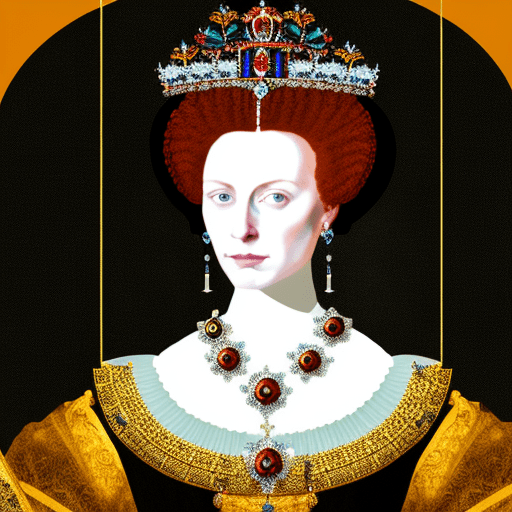One-line summary:
I, Elizabeth is a historical fiction novel that offers a captivating and intimate portrayal of Queen Elizabeth I, exploring her rise to power, personal struggles, and enduring legacy.
The Rise of a Queen
I, Elizabeth, written by Rosalind Miles, takes readers on a journey through the life of one of England’s most iconic monarchs, Queen Elizabeth I. The novel begins with Elizabeth’s childhood, marked by the tumultuous reigns of her father, Henry VIII, and her half-sister, Mary I. Despite the challenges she faces, including her mother’s execution and her own imprisonment, Elizabeth emerges as a resilient and intelligent young woman.
As Elizabeth ascends to the throne, she faces numerous obstacles, including political intrigue, religious conflict, and the constant threat of invasion. However, her unwavering determination and shrewd decision-making enable her to navigate these treacherous waters and establish herself as a formidable leader.
A Woman in a Man’s World
One of the central themes in I, Elizabeth is the struggle Elizabeth faces as a woman in a male-dominated society. Throughout her reign, she must contend with the expectations and limitations placed upon her simply because of her gender. Despite these challenges, Elizabeth proves herself to be a capable and visionary ruler, defying societal norms and asserting her authority.
Elizabeth’s refusal to marry and produce an heir becomes a defining aspect of her reign. While many pressure her to wed in order to secure the succession, Elizabeth remains steadfast in her commitment to her country. She becomes known as the “Virgin Queen,” a symbol of female empowerment and independence.
The Legacy of Elizabeth I
The novel also explores the lasting impact of Elizabeth’s reign. Under her rule, England experiences a period of cultural and intellectual flourishing known as the Elizabethan era. This era is characterized by advancements in literature, theater, and exploration, with figures like William Shakespeare and Sir Francis Drake emerging as prominent figures.
Elizabeth’s reign also sees the establishment of the Church of England as the country’s official religion, a decision that has far-reaching consequences for the nation’s religious landscape. Additionally, her skillful diplomacy and military strategies help solidify England’s position as a global power.
Key Takeaways:
- Elizabeth I defied societal expectations and proved herself to be a capable and visionary leader.
- Her reign marked a period of cultural and intellectual flourishing, known as the Elizabethan era.
- Elizabeth’s refusal to marry and produce an heir became a symbol of female empowerment and independence.
- Her establishment of the Church of England and skillful diplomacy solidified England’s position as a global power.
“I know I have the body of a weak and feeble woman, but I have the heart and stomach of a king, and of a king of England too!”
– Queen Elizabeth I
In conclusion, I, Elizabeth provides readers with a captivating and intimate portrayal of Queen Elizabeth I, shedding light on her rise to power, personal struggles, and enduring legacy. Through the novel, Rosalind Miles brings to life the remarkable story of a woman who defied societal expectations and left an indelible mark on history. Elizabeth’s reign is a testament to the power of resilience, intelligence, and determination, serving as an inspiration for generations to come.












